Monkeys picking coconuts is most definitely not as cute as it sounds. Truth is, that if you use coconut products then there is a high chance that your purchases are supporting animal cruelty.
Most people are shocked to discover that the majority of coconut products are made by using and exploiting monkeys. Abducted as babies, chained up and trained to pick 1,000 coconuts every day, the profitable coconut industry is built on the abuse of monkeys
Everyone is going COCO NUTS for Coconuts. Health enthusiasts are touting its health benefits, vegans are buying it in bulk incase of a zombie invasion and out of sheer curiosity the everyday middleman has purchased a bottle or two of coconut water.
The majority of coconuts used in mainstream coconut products are farmed in South East Asia, including Thailand, Malaysia and Indonesia. According to a monkey handler in Thailand, almost every farm within this region uses monkeys to collect the coconuts. So if you have purchased a coconut product then there is a high chance that it was picked by a monkey.
Some reports also suggest that due to a labor shortage in Kerela, India where coconut palms are grown, harvesting coconuts with monkeys may begin occurring there, as well. Picking coconuts is difficult, dangerous, labor intensive work, something younger generations of Indians are becoming increasingly unwilling to do.
Agile and adept climbers, pig-tailed macaques are native to coconut growing regions in Southeast Asia. Captured monkeys are sent off to one of the many monkey schools where they are trained to pick up to 1200 ripe coconuts a day whilst chained by the neck. A highly profitable gig considering that humans can only pick about 200 a day. Sadly, these monkeys are tethered or caged 24/7, often with little to no opportunity for socialization.
Where do these monkeys come from? According to one monkey handler, “Sometimes the monkeys are offspring of berok (already trained monkeys); sometimes they are caught on the forest with nets or traps. Often though, nursing mothers are shot and their babies are taken.”
There are many people who don't believe it is wrong and will even suggest that the monkeys are well looked after. Honestly, in my opinion the truth is glossed over in hope that people will think that the monkeys actually enjoy the work rather than acknowledging it for what it really is: exploitation of highly intelligent individuals. The Island of Koh Samui website boasts about how tourists can see monkeys climbing 'at great speed and flying from tree to tree in their hunt for the ripened coconuts'.
Instead of living fulfilling lives that would include social interaction with other monkeys, mating, raising young, moving about freely and resting whenever they choose—these monkeys spend their lives attached to a chain and forced to pick thousands of coconuts in their lives just so humans can profit. If the monkeys truly enjoyed this work and being with the humans then why do they need to be chained up?
Like many of you, I went vegan to protect the animals and to put an end to all animal exploitation. Having monkeys pick our coconuts is no different. As the demand continues to grow for coconuts, coconut oil and its various derivatives, so does the abuse of macaque monkeys who suffer 'serious psychological damage' as a result of being chained up 24-hours-a-day.
- Watch a video showing the cruel training of a pig-tailed macaques to pick coconuts harvested anywhere is SouthEast Asia by clicking here.
- Click here for a video of a heartbreaking explanation of this cruel process, one that involves stealing baby primates from their mothers who are shot, then chaining them by the neck and beating them into submission.
We must make a stand by choosing not to buy coconut products that come from South East Asia. This includes dropping all your favourite brands and foods that have coconut products in them and don't state where the coconut comes from.
According to the Bangkok Post, one training centre claims that using pig-tailed macaques is safer than using humans because they are 'strong, enjoy climbing, do not complain, do not call for higher wages... and are not corrupt.'
It adds: 'They do not require social security and accident insurance. Monkeys are therefore considered a "living machine" that is very valuable for coconut farmers.'
Some monkeys are even taught to collect grounded coconuts and put them into sacks, which saves their owners hours of back-breaking labour.
Locals in Thailand argue that monkeys have been helping their 'human friends' harvest coconuts for hundreds of years.
Science has showed us tirelessly that primates are intelligent beings with the ability to reason, get mad, and fight back?
Primates are known to stand up for themselves and there are several reports in the past where primates have taken aim at humans—literally. Peta reported "A monkey in Thailand—fed up with performing the thankless task of climbing coconut trees to retrieve fruit for his owner to sell—apparently launched a coconut at the man’s head, killing him instantly".
In the end the monkey had the last laugh - and all we can hope for is that maybe the monkeys witnessing the coconut launch picked up a few tips of their own.
THE PRACTICE OF USING MONKEYS ON COCONUT FARMS IS A FORM OF ANIMAL ABUSE. SO WHAT CAN WE DO ABOUT IT?
1. Choose your coconut products wisely.
Make sure to buy coconut oil or products from companies that don’t use pigtailed macaques on their coconut farms. This also goes for checking out your favourite vegan chocolate and vegan cheese company as they use coconut oil in majority of their products.
2. Be wary of the country of origin.
Look at the origin of your coconut products. It’s believed that Thailand very largely uses monkeys to harvest coconuts. Personally I avoid all South East Asia and stick to Pacific Island Coconut products from Fiji, Samoa, Solomon Islands and Vanuatu.
3. Contact companies.
Another thing you can do is write to coconut oil companies yourself. Ask them about their coconut farms and let it be known that you won’t support this harvesting practice. Also write to your favourite brands that use coconut oil in their product to find out where they source it from.
The solution to this problem can't be fixed overnight. We can't even blame the people responsible for training and looking after the monkeys as at the end of the day they are just trying to put food on their table. The problem runs much deeper, there needs to be a positive solution across the entire industry. I believe it starts with consumers choosing to pay a little more for their coconut products so that humans picking the coconuts becomes a viable option for the farmer. What do you think part of the solution is?


